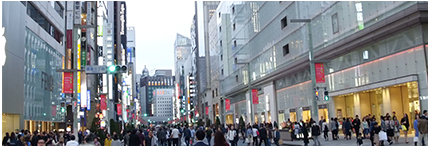Prime Minister Abe’s Brains Lock Horns over Sales Tax Raise BY JUNICHI FUJIMOTO
September 1, 2013
Junichi Fujimoto was born in 1958. He is a journalist. After working for newspapers and magazines, he became a freelance journalist. Since 2003, he writes a series of political articles published under the heading of “Nagata-cho Waido-sho” for the daily newspaper “Tokyo Sports”. Among other books, he wrote “Nagata-cho Kitan (Curious Incidents at Nagata-cho)”(Fusosha Publishing). His blog is: http://fujimoto-junichi.blogspot.jp/
On August 26 started the “Intensive Evaluation Meeting” of the Council on Economic and Fiscal Policy which gathered 60 influential members and experts from various circles in order to provide insights to Prime Minister Abe for making a judgment about the period to raise consumption tax. The advisory panel is likely to be divided between members focusing on the consequences of the 3 percent sales tax increase on the market prices if it is implemented next April as planned, and those who would consider the impact on the national bonds market in case the raise doesn’t take place, on the other hand.
The other day, on TV the debate between two Prime Minister Abe’s prominent brains on economic policy was only a prelude to such a situation.
Cabinet Advisor on economic policy, Etsuro Honda who adopts a cautious stance regarding the 3 percent tax raise for next April said that “Abenomics is gradually being implemented. Next April the economy will still be recovering, and it won’t stand a tax hike” in response to the pro-tax increase camp whose view is backed up by the announcement of the growth in GDP figure for the first quarter of the FY 2013.
On the other hand, Cabinet Advisor on growth strategy, Taichi Sakaiya declared that “by putting off the tax increase, Japan will lose its credibility regarding its pledges and policy. Discussions have already been held for long, the tax should be increased (as planned)”.
Besides, Mr. Sakaiya said that in order to address concerns over the impact on the market prices and the cost of living, the sales tax raise can be implemented while the corporation tax, the income tax, and the inheritance tax would be rebated. He rejected Mr. Honda’s view according to which sales tax should gradually be raised by 1 percent every year and said that “there’s a risk of throwing consumers and businesses into dire confusion with such a way of doing”.
Even Prime Minister’s brains on economic policy bear sharply different views over the period for sales tax increase.
Even if the view supported by Mr. Sakaiya consisting in the rebate of corporate, income, and inheritance taxes is taken into account, tax revenues will hardly rise by increasing the sales tax rate. Much less, it is unthinkable that such piecemeal approach would relieve concerns people have over their lives in the future.
The Abe Cabinet was supposed to have as its chief mission “the recovery and the growth of the economy translatable in the living condition of every single citizen”, to begin with. Even the polls recently carried out by the Mainichi Shimbun indicate that the majority of the population nourishes great expectations of “abenomics”. Conversely, only 24 percent of people have expressed their understanding for sales tax raise as planned.
With such figures, isn’t it appropriate to modestly take into account the voice of the population and promptly decide to postpone the consumption tax increase? If public trust is lost, there’ll be no way to fulfill international commitments.
[From the Blog: “Junichi Fujimoto ga ‘Seiji wo Yomitoku’”]
(Translated from Japanese by Willy Lukebana Toko)







